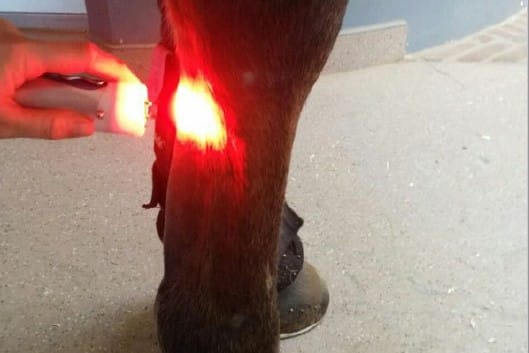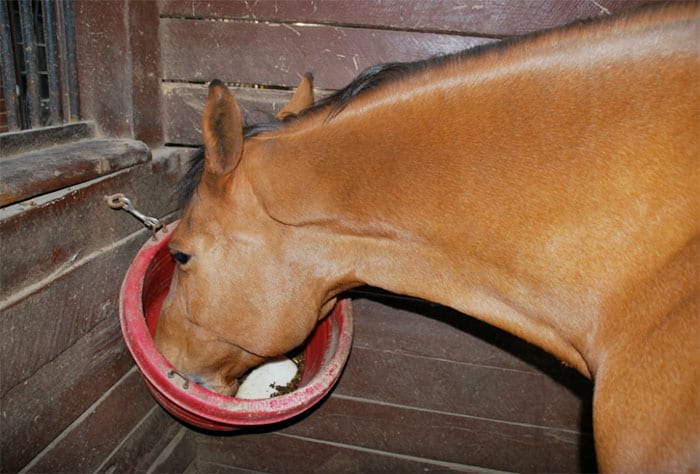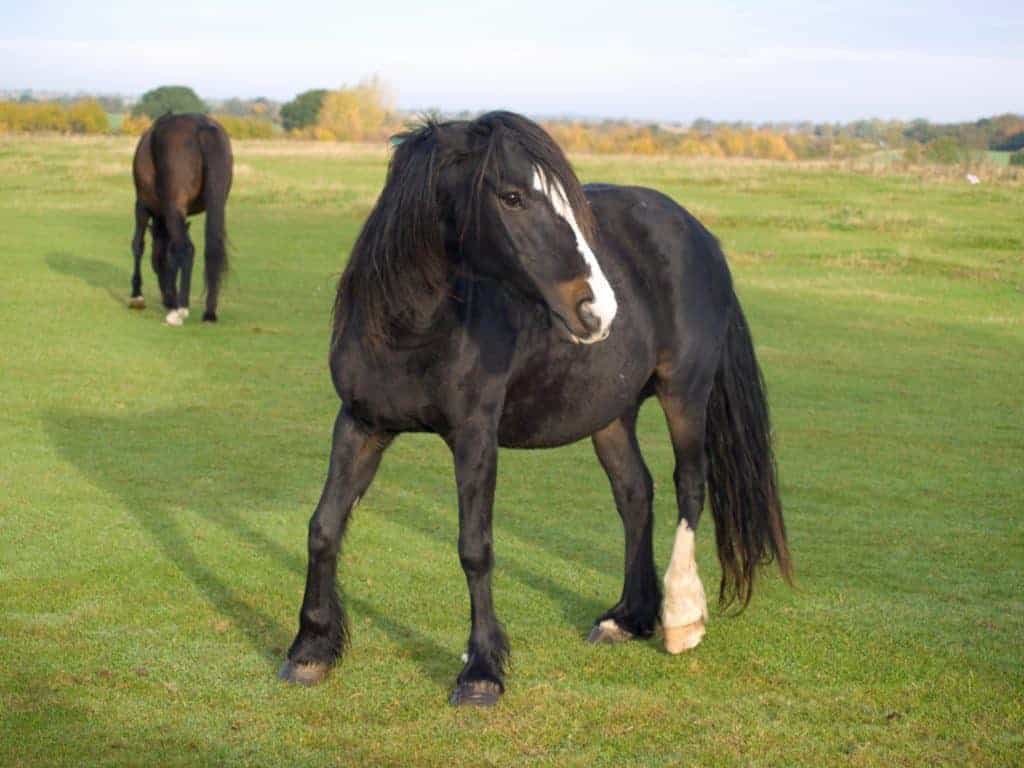
Clinician: Managing Laminitic Pain Takes Multiple Therapies
A review of research into laminitic pain in horses found veterinarians rely on a multimodal approach for pain management.
All aspects of caring for performance horses

A review of research into laminitic pain in horses found veterinarians rely on a multimodal approach for pain management.

While researchers have used pressure mats for years to visualize the kinds of pressures occurring between a horse’s back and a rider’s seat, the technology is now more accessible.

In a standardized-lesion-induced model, veterinarians found high-powered laser significantly reduced enlargement of lesions on ultrasound and increased signs of healing on Doppler and MRI.

The 2 goals of an equine back treatment plan are breaking the pain cycle and increasing strength, function, and stability.

Researchers found that 37% of the nearly 150 Warmblood horses they examined had at least one lesion on the nasal bone, and nearly 14% had at least one lesion on the mandible (lower jaw).

Does your horse need a dollop, dab, pinch, or peck? Learn to formulate a diet based on your horse’s age, body condition, and health status.

The Horse asked researchers and equestrian federation representatives for their takes on the new FEI rule banning shaving of facial vibrissae, which are sensory organs commonly called “whiskers.”

An expert lists four broad PT categories and describes the many techniques within each that can help horses recover from injury and improve their performance.

A Norwegian and Swedish study shows that autologous conditioned serum with higher levels of certain biological anti-inflammatories and growth factors is more likely to reduce lameness in treated horses.

Biomechanics expert: The wrong rehab program for a horse can be counterproductive.

Read about the existing science behind acupuncture and what you should know before scheduling an appointment for your horse.

A heart murmur diagnosis can raise many questions: Is my horse safe to ride? Is my horse going to die? Is there anything I can do? The answers to those questions usually require further investigation.

Showing, training, traveling, or even lifestyle changes can put your horse under stress that risks his health. The right nutritional choices can support his immune system, GI tract, and overall well-being. Learn how.

Horses experience changes in force on their bodies and limbs when they turn. This can affect lameness exams, making them look both more and less lame. And should racetracks be banked?

The drug used to bring mares into heat for breeding might be just as effective at keeping them out of heat when given at different doses.

Omega-3 fatty acids offer horses health benefits, but are fish sources okay for horses to eat?
Stay on top of the most recent Horse Health news with
"*" indicates required fields